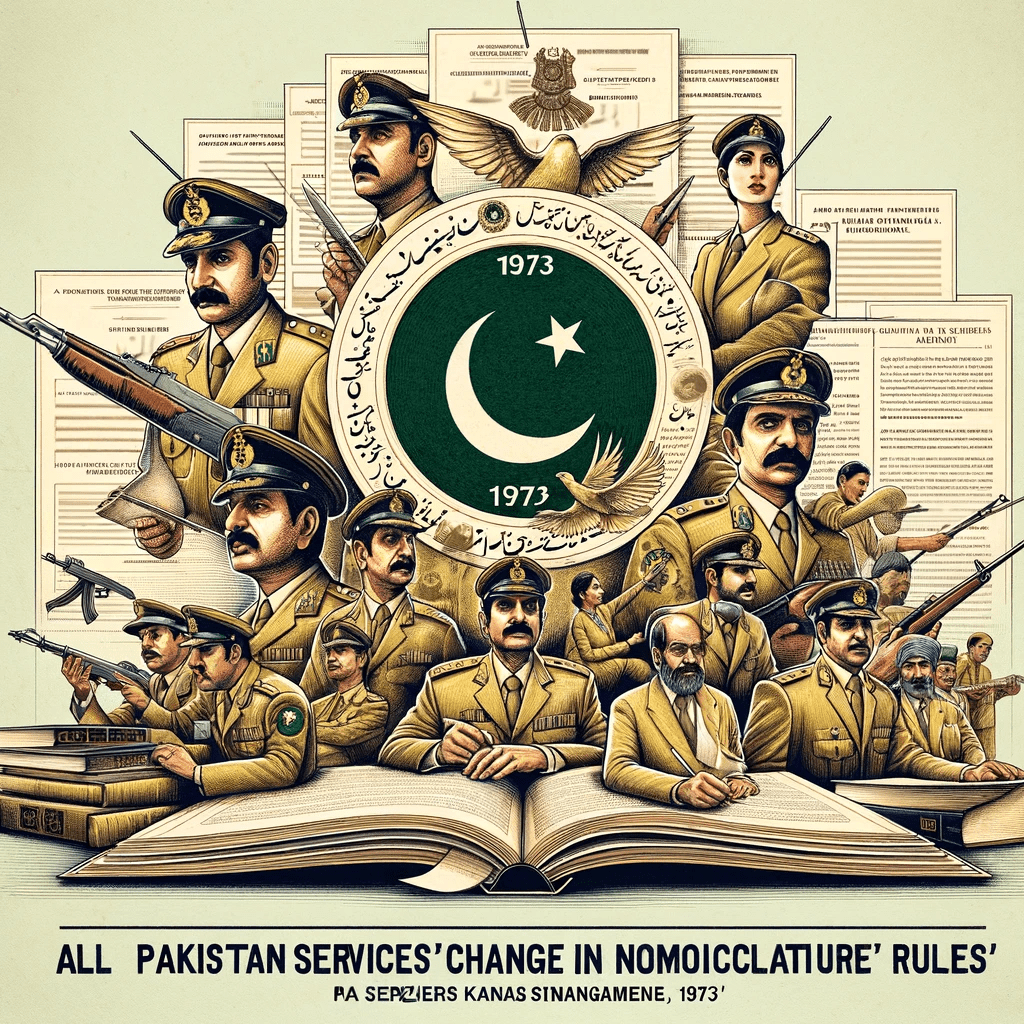The BALOCHISTAN CIVIL SERVANTS (EFFICIENCY AND DISCIPLINE) RULES, 1983
The BALOCHISTAN CIVIL SERVANTS (EFFICIENCY AND DISCIPLINE) RULES, 1983 The Balochistan Civil Servants (Efficiency and Discipline) Rules, 1983, form a crucial regulatory framework that governs the efficiency, discipline, and conduct of civil servants in the province of Balochistan, Pakistan. These rules, established in 1983, provide a structured framework for maintaining the integrity and professionalism of the civil service. In this introduction, we will delve into the historical context, key objectives, and legal significance of these rules. Rules Contents 1 Short title, commencement and application. 2 Definitions. 3 Grounds for penalty 4 Penalties. 5 Initiation of proceedings and summary action. 6 Inquiry procedure. 7 Procedure to be observed by the Inquiry Officer or Inquiry Committee. 8 Power of the Inquiry Officer or Inquiry Committee. 9 Rules 5 and 6 not to apply in certain cases. 10 Procedure of inquiry against officers lent to other Government or authority. 11 Powers to order medical examination as to mental or bodily infirmity. 12 Appearance of counsel. 13 Miscellaneous. 14 Appeal. 15 Revision. 16 Repeal. BALOCHISTAN CIVIL SERVANTS (EFFICIENCY AND DISCIPLINE) RULES, 1983 5th May, 1983 In exercise of the powers conferred by section 25 of the Baluchistan Civil Servants Act, 1974 (IX of 1974), the Government of Balochistan is pleased to make the following rules, namely:- Short title, commencement and application.-(1) These rules may be called the Baluchistan Civil Servant (Efficiency and Discipline) Rules, 1983. (2) They shall come into force at once and shall apply to all civil servants wherever they may be and shall also apply to or in relation to a person in temporary employment in the service of Balochistan. Definitions.- (1) In these rules, unless the context otherwise requires, the following expressions shall have meanings hereby respectively assigned to them, that is to say:- (a) “Accused” means a civil servant against whom action is taken under these rules; (b) “Authority” means the Government or an officer or authority designated by it to exercise the powers of the authority under these rules in respect of any category of officer; (c) “Authorized Officer” means an officer authorized or designated by Government to perform the functions of an Authorized Officer under these rules: Provided that where in the case of a civil servant no authorized Officer has been so Authorized or designated, the authority shall have power to appoint an officer to act as authorized officer in that case. Provided further that in relation to a civil servant, the authority may be authorized to act Authorized Officer; (d) “Appellate Authority” means the authority specified in the Balochistan Civil Servants (Appeal) Rules, 1983. (e) “Misconduct” means conduct prejudicial to good order or service discipline or contrary to the Balochistan Government Servants (Conduct) Rules, 1979 or unbecoming of an officer and a gentleman and includes any act on the part of a civil servant to bring or attempt to bring political or other outside influence directly or indirectly to bear on the Government or Government officer in respect of any matter relating to the appointment, promotion, transfer, punishment, retirement or other conditions of service of a civil servant; (f) “Penalty” means a penalty which may be imposed under these rules. (2) Words and expressions used but riot defined shall have the same meanings as assigned to them in the Balochistan Civil Servants Act, 1974. Grounds for penalty.-Where a civil servant, in the opinion of the authority; (a) is inefficient or has ceased to be efficient; or (b) is guilty of gross negligence; or (c) is guilty of misconduct; or (d) is corrupt, or may reasonably be considered corrupt because- (i) he is, or any of his dependents or any other person through him or on his behalf is, in possession (for which he cannot reasonably account) of pecuniary resources or of property disproportionate to his known sources of income; or (ii) he has assumed a style of living beyond his ostensible means; or (iii) he has a persistent reputation of being corrupt; or (e) is engaged or is reasonably suspected of being engaged, in subversive activities, or is reasonably suspected of being associated with others engaged in subversive activities or is guilty of disclosure of official secrets to any unauthorized person, and his retention in service is, therefore, prejudicial to national security, the authority may impose on him one or more of the penalties prescribed in rule 4. Penalties. “(I) The following are the penalties, namely:– (a) censure; (b) withholding, for a specific period, promotion or increment, otherwise than for unfitness for promotion or financial advancement, in accordance with rules or orders pertaining to the service or post; (c) stoppage, for a specific period, at an efficiency bar in the time-scale, otherwise than for unfitness to cross such bar; (d) recovery from pay of the whole or any part of any pecuniary loss caused to Government by negligence or breach of order; (e) reduction to a lower post or time-scale, or a lower stage in a time scale; (f) compulsory retirement; (g) removal from service; and (h) dismissal from service; and (2) Removal from service does not, but dismissal from service does disqualify for future employment with the Government or any body or corporation established, owned or controlled by the Government. (3) In this rule, removal or dismissal from service does not include in discharge of a person- (a) appointed on probation, during the period of probation or in accordance with the probation or training rules applicable to him ; or (b) appointed, otherwise than under a contract, to hold a temporary appointment, on the expiration of the period of appointment; or
The BALOCHISTAN CIVIL SERVANTS (EFFICIENCY AND DISCIPLINE) RULES, 1983 Read More »
Laws of Pakistan - Library









